DCS fault source analysis, prevention work and analysis of its problem solving measures
The DCS (Distributed Control System) is composed of system software, hardware, operator panels, and field instruments. Any issue in any component can lead to partial system failure or even a complete control system breakdown, which may result in production shutdowns in severe cases. When a system goes down, the financial loss can be substantial.
In reality, many DCS failures are caused by small, overlooked daily details. By strengthening control over these minor aspects during daily operations, a significant portion of DCS-related losses can be prevented. So, what should you pay attention to? Recently, Xiao Bian has carefully compiled relevant information, hoping to provide useful guidance for everyone.
What are the common causes of DCS faults?
First, let's look at the typical sources of DCS faults.
**Human Error**
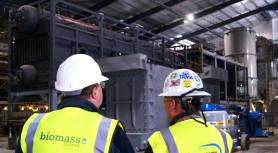 Although DCS technology is now quite mature with high levels of modularity, hardware failures are relatively rare. Most issues stem from human factors such as incorrect configuration or improper operation. These types of errors are quite common.
**Information Security**
Although DCS technology is now quite mature with high levels of modularity, hardware failures are relatively rare. Most issues stem from human factors such as incorrect configuration or improper operation. These types of errors are quite common.
**Information Security**
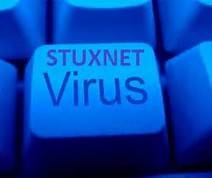 Industrial control systems are no longer isolated environments. Cybersecurity threats have become a growing concern.
**Power Failure**
Industrial control systems are no longer isolated environments. Cybersecurity threats have become a growing concern.
**Power Failure**
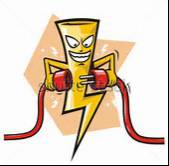 Power interruptions during automated operations can pose a serious threat to DCS systems. Poor connections, failure to activate backup power, insufficient circuit breaker capacity, mismatched loads, power line accidents, or damaged components can all cause power failures. Common effects include power outages, voltage sags, surges, or under-voltage. High voltage can damage boards, while low voltage can cause malfunctions or abnormal signals. A total power outage will crash the entire DCS system.
**Electromagnetic Interference**
Power interruptions during automated operations can pose a serious threat to DCS systems. Poor connections, failure to activate backup power, insufficient circuit breaker capacity, mismatched loads, power line accidents, or damaged components can all cause power failures. Common effects include power outages, voltage sags, surges, or under-voltage. High voltage can damage boards, while low voltage can cause malfunctions or abnormal signals. A total power outage will crash the entire DCS system.
**Electromagnetic Interference**
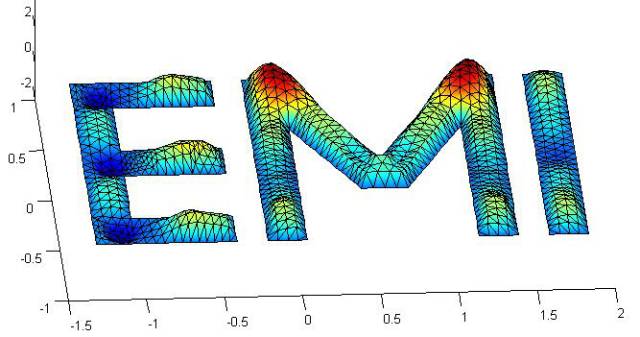 Due to the industrial environment, DCS systems often operate near high-voltage equipment, leading to harsh electromagnetic conditions. It is often impractical to eliminate interference completely, so improving system immunity is crucial.
**Poor Grounding**
Due to the industrial environment, DCS systems often operate near high-voltage equipment, leading to harsh electromagnetic conditions. It is often impractical to eliminate interference completely, so improving system immunity is crucial.
**Poor Grounding**
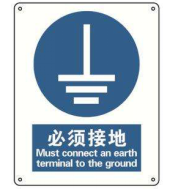 Poor grounding can lead to signal instability or drift when the system is exposed to electromagnetic interference. In extreme cases, it can even damage the board.
**Temperature and Humidity Effects**
Poor grounding can lead to signal instability or drift when the system is exposed to electromagnetic interference. In extreme cases, it can even damage the board.
**Temperature and Humidity Effects**
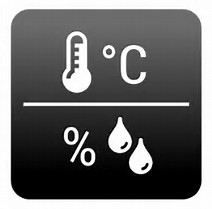 High or low temperatures, dryness, or humidity can significantly affect system performance. Components may fail or degrade due to environmental stress. For example, analog card accuracy can drop by 0.1% per 10°C temperature change. Excessive humidity can create water films that reduce insulation, while low humidity can cause materials to crack and become brittle.
**Static Influence**
High or low temperatures, dryness, or humidity can significantly affect system performance. Components may fail or degrade due to environmental stress. For example, analog card accuracy can drop by 0.1% per 10°C temperature change. Excessive humidity can create water films that reduce insulation, while low humidity can cause materials to crack and become brittle.
**Static Influence**
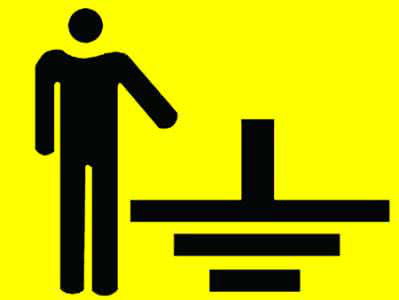 Insulating materials can accumulate static electricity, which may cause electrostatic discharge and damage sensitive chips. This kind of damage is often hidden and hard to detect.
**Corrosion Effect**
Insulating materials can accumulate static electricity, which may cause electrostatic discharge and damage sensitive chips. This kind of damage is often hidden and hard to detect.
**Corrosion Effect**
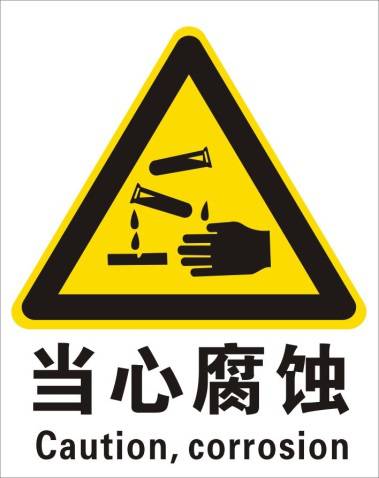 Corrosive gases or sea breeze in coastal areas can severely damage DCS boards and computer components, leading to short circuits and hardware failure.
**Lightning Impact**
Corrosive gases or sea breeze in coastal areas can severely damage DCS boards and computer components, leading to short circuits and hardware failure.
**Lightning Impact**
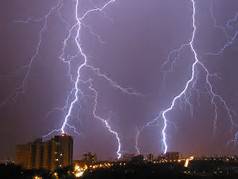 During lightning strikes, the ground potential can rise, causing discharges between the lightning protection grounding and the control system if they are too close. This can interfere with or damage the DCS.
**Other Hazards**
During lightning strikes, the ground potential can rise, causing discharges between the lightning protection grounding and the control system if they are too close. This can interfere with or damage the DCS.
**Other Hazards**
 Dust and rodents can also cause serious damage to DCS equipment and wiring.
**How to Prevent Faults?**
First, focus on engineering design and construction before DCS installation. Measures like lightning protection, grounding, and shielding are harder to implement after the system is operational. Therefore, it’s better to plan ahead. Choose a proper grounding method, such as single-point equipotential grounding, and follow standard specifications during installation.
Second, address problems found during use promptly. To reduce electromagnetic interference, cut off the path between the source and the DCS. Use grid shielding in the control room, install filters on signal cables, and ensure proper cable routing. Also, use SPD devices to prevent lightning surges.
Third, strictly follow operating procedures. When handling cards, wear anti-static wristbands and store spare parts in anti-static bags.
Fourth, maintain daily operations:
- Regularly check power supplies, perform redundancy tests, and inspect UPS batteries.
- Ensure network connectors and cables are secure, and check fan operation and airflow.
- Monitor controller and I/O module status, and verify grounding resistance.
- Check system workload, clean hard drives, and back up files regularly.
- Install firewalls and update virus databases to improve security.
- Avoid unnecessary software or hardware changes.
- Document all configuration changes and back up data regularly.
- Maintain proper temperature, humidity, and cleanliness in the control room.
- Perform quarterly cleaning of operator and DPU stations.
Fifth, implement preventive maintenance during overhauls. This includes checking power supply and grounding, performing redundancy tests, inspecting system cards, cleaning components, backing up data, maintaining network connections, and checking terminal connections.
Finally, keep detailed logs and troubleshooting records.
**What to Do If a Problem Occurs?**
Even with strict prevention, faults can still occur. When a DCS system fails, it’s essential to quickly identify and diagnose the root cause. Experts recommend following these steps:
1. Thoroughly analyze the symptoms—reproduce them if possible.
2. Determine when the fault occurred—during commissioning, normal operation, or maintenance.
3. Check if any recent changes were made—hardware, software, or wiring.
4. Look for fault indicator lights on the boards.
5. Use a standard signal generator to test board functionality.
6. Swap boards with spares to isolate the issue.
7. Determine if the problem is temporary or recurring.
8. Review system logs and historical records for clues.
By following these steps, you can efficiently troubleshoot and resolve DCS system issues.
Dust and rodents can also cause serious damage to DCS equipment and wiring.
**How to Prevent Faults?**
First, focus on engineering design and construction before DCS installation. Measures like lightning protection, grounding, and shielding are harder to implement after the system is operational. Therefore, it’s better to plan ahead. Choose a proper grounding method, such as single-point equipotential grounding, and follow standard specifications during installation.
Second, address problems found during use promptly. To reduce electromagnetic interference, cut off the path between the source and the DCS. Use grid shielding in the control room, install filters on signal cables, and ensure proper cable routing. Also, use SPD devices to prevent lightning surges.
Third, strictly follow operating procedures. When handling cards, wear anti-static wristbands and store spare parts in anti-static bags.
Fourth, maintain daily operations:
- Regularly check power supplies, perform redundancy tests, and inspect UPS batteries.
- Ensure network connectors and cables are secure, and check fan operation and airflow.
- Monitor controller and I/O module status, and verify grounding resistance.
- Check system workload, clean hard drives, and back up files regularly.
- Install firewalls and update virus databases to improve security.
- Avoid unnecessary software or hardware changes.
- Document all configuration changes and back up data regularly.
- Maintain proper temperature, humidity, and cleanliness in the control room.
- Perform quarterly cleaning of operator and DPU stations.
Fifth, implement preventive maintenance during overhauls. This includes checking power supply and grounding, performing redundancy tests, inspecting system cards, cleaning components, backing up data, maintaining network connections, and checking terminal connections.
Finally, keep detailed logs and troubleshooting records.
**What to Do If a Problem Occurs?**
Even with strict prevention, faults can still occur. When a DCS system fails, it’s essential to quickly identify and diagnose the root cause. Experts recommend following these steps:
1. Thoroughly analyze the symptoms—reproduce them if possible.
2. Determine when the fault occurred—during commissioning, normal operation, or maintenance.
3. Check if any recent changes were made—hardware, software, or wiring.
4. Look for fault indicator lights on the boards.
5. Use a standard signal generator to test board functionality.
6. Swap boards with spares to isolate the issue.
7. Determine if the problem is temporary or recurring.
8. Review system logs and historical records for clues.
By following these steps, you can efficiently troubleshoot and resolve DCS system issues.
 Although DCS technology is now quite mature with high levels of modularity, hardware failures are relatively rare. Most issues stem from human factors such as incorrect configuration or improper operation. These types of errors are quite common.
**Information Security**
Although DCS technology is now quite mature with high levels of modularity, hardware failures are relatively rare. Most issues stem from human factors such as incorrect configuration or improper operation. These types of errors are quite common.
**Information Security**
 Industrial control systems are no longer isolated environments. Cybersecurity threats have become a growing concern.
**Power Failure**
Industrial control systems are no longer isolated environments. Cybersecurity threats have become a growing concern.
**Power Failure**
 Power interruptions during automated operations can pose a serious threat to DCS systems. Poor connections, failure to activate backup power, insufficient circuit breaker capacity, mismatched loads, power line accidents, or damaged components can all cause power failures. Common effects include power outages, voltage sags, surges, or under-voltage. High voltage can damage boards, while low voltage can cause malfunctions or abnormal signals. A total power outage will crash the entire DCS system.
**Electromagnetic Interference**
Power interruptions during automated operations can pose a serious threat to DCS systems. Poor connections, failure to activate backup power, insufficient circuit breaker capacity, mismatched loads, power line accidents, or damaged components can all cause power failures. Common effects include power outages, voltage sags, surges, or under-voltage. High voltage can damage boards, while low voltage can cause malfunctions or abnormal signals. A total power outage will crash the entire DCS system.
**Electromagnetic Interference**
 Due to the industrial environment, DCS systems often operate near high-voltage equipment, leading to harsh electromagnetic conditions. It is often impractical to eliminate interference completely, so improving system immunity is crucial.
**Poor Grounding**
Due to the industrial environment, DCS systems often operate near high-voltage equipment, leading to harsh electromagnetic conditions. It is often impractical to eliminate interference completely, so improving system immunity is crucial.
**Poor Grounding**
 Poor grounding can lead to signal instability or drift when the system is exposed to electromagnetic interference. In extreme cases, it can even damage the board.
**Temperature and Humidity Effects**
Poor grounding can lead to signal instability or drift when the system is exposed to electromagnetic interference. In extreme cases, it can even damage the board.
**Temperature and Humidity Effects**
 High or low temperatures, dryness, or humidity can significantly affect system performance. Components may fail or degrade due to environmental stress. For example, analog card accuracy can drop by 0.1% per 10°C temperature change. Excessive humidity can create water films that reduce insulation, while low humidity can cause materials to crack and become brittle.
**Static Influence**
High or low temperatures, dryness, or humidity can significantly affect system performance. Components may fail or degrade due to environmental stress. For example, analog card accuracy can drop by 0.1% per 10°C temperature change. Excessive humidity can create water films that reduce insulation, while low humidity can cause materials to crack and become brittle.
**Static Influence**
 Insulating materials can accumulate static electricity, which may cause electrostatic discharge and damage sensitive chips. This kind of damage is often hidden and hard to detect.
**Corrosion Effect**
Insulating materials can accumulate static electricity, which may cause electrostatic discharge and damage sensitive chips. This kind of damage is often hidden and hard to detect.
**Corrosion Effect**
 Corrosive gases or sea breeze in coastal areas can severely damage DCS boards and computer components, leading to short circuits and hardware failure.
**Lightning Impact**
Corrosive gases or sea breeze in coastal areas can severely damage DCS boards and computer components, leading to short circuits and hardware failure.
**Lightning Impact**
 During lightning strikes, the ground potential can rise, causing discharges between the lightning protection grounding and the control system if they are too close. This can interfere with or damage the DCS.
**Other Hazards**
During lightning strikes, the ground potential can rise, causing discharges between the lightning protection grounding and the control system if they are too close. This can interfere with or damage the DCS.
**Other Hazards**
 Dust and rodents can also cause serious damage to DCS equipment and wiring.
**How to Prevent Faults?**
First, focus on engineering design and construction before DCS installation. Measures like lightning protection, grounding, and shielding are harder to implement after the system is operational. Therefore, it’s better to plan ahead. Choose a proper grounding method, such as single-point equipotential grounding, and follow standard specifications during installation.
Second, address problems found during use promptly. To reduce electromagnetic interference, cut off the path between the source and the DCS. Use grid shielding in the control room, install filters on signal cables, and ensure proper cable routing. Also, use SPD devices to prevent lightning surges.
Third, strictly follow operating procedures. When handling cards, wear anti-static wristbands and store spare parts in anti-static bags.
Fourth, maintain daily operations:
- Regularly check power supplies, perform redundancy tests, and inspect UPS batteries.
- Ensure network connectors and cables are secure, and check fan operation and airflow.
- Monitor controller and I/O module status, and verify grounding resistance.
- Check system workload, clean hard drives, and back up files regularly.
- Install firewalls and update virus databases to improve security.
- Avoid unnecessary software or hardware changes.
- Document all configuration changes and back up data regularly.
- Maintain proper temperature, humidity, and cleanliness in the control room.
- Perform quarterly cleaning of operator and DPU stations.
Fifth, implement preventive maintenance during overhauls. This includes checking power supply and grounding, performing redundancy tests, inspecting system cards, cleaning components, backing up data, maintaining network connections, and checking terminal connections.
Finally, keep detailed logs and troubleshooting records.
**What to Do If a Problem Occurs?**
Even with strict prevention, faults can still occur. When a DCS system fails, it’s essential to quickly identify and diagnose the root cause. Experts recommend following these steps:
1. Thoroughly analyze the symptoms—reproduce them if possible.
2. Determine when the fault occurred—during commissioning, normal operation, or maintenance.
3. Check if any recent changes were made—hardware, software, or wiring.
4. Look for fault indicator lights on the boards.
5. Use a standard signal generator to test board functionality.
6. Swap boards with spares to isolate the issue.
7. Determine if the problem is temporary or recurring.
8. Review system logs and historical records for clues.
By following these steps, you can efficiently troubleshoot and resolve DCS system issues.
Dust and rodents can also cause serious damage to DCS equipment and wiring.
**How to Prevent Faults?**
First, focus on engineering design and construction before DCS installation. Measures like lightning protection, grounding, and shielding are harder to implement after the system is operational. Therefore, it’s better to plan ahead. Choose a proper grounding method, such as single-point equipotential grounding, and follow standard specifications during installation.
Second, address problems found during use promptly. To reduce electromagnetic interference, cut off the path between the source and the DCS. Use grid shielding in the control room, install filters on signal cables, and ensure proper cable routing. Also, use SPD devices to prevent lightning surges.
Third, strictly follow operating procedures. When handling cards, wear anti-static wristbands and store spare parts in anti-static bags.
Fourth, maintain daily operations:
- Regularly check power supplies, perform redundancy tests, and inspect UPS batteries.
- Ensure network connectors and cables are secure, and check fan operation and airflow.
- Monitor controller and I/O module status, and verify grounding resistance.
- Check system workload, clean hard drives, and back up files regularly.
- Install firewalls and update virus databases to improve security.
- Avoid unnecessary software or hardware changes.
- Document all configuration changes and back up data regularly.
- Maintain proper temperature, humidity, and cleanliness in the control room.
- Perform quarterly cleaning of operator and DPU stations.
Fifth, implement preventive maintenance during overhauls. This includes checking power supply and grounding, performing redundancy tests, inspecting system cards, cleaning components, backing up data, maintaining network connections, and checking terminal connections.
Finally, keep detailed logs and troubleshooting records.
**What to Do If a Problem Occurs?**
Even with strict prevention, faults can still occur. When a DCS system fails, it’s essential to quickly identify and diagnose the root cause. Experts recommend following these steps:
1. Thoroughly analyze the symptoms—reproduce them if possible.
2. Determine when the fault occurred—during commissioning, normal operation, or maintenance.
3. Check if any recent changes were made—hardware, software, or wiring.
4. Look for fault indicator lights on the boards.
5. Use a standard signal generator to test board functionality.
6. Swap boards with spares to isolate the issue.
7. Determine if the problem is temporary or recurring.
8. Review system logs and historical records for clues.
By following these steps, you can efficiently troubleshoot and resolve DCS system issues.12 volt lithium marine battery,optima marine battery,lithium ion marine battery,autozone marine battery,lithium deep cycle marine battery,12v battery deep cycle marine
EMoreShare International Trade (Suzhou) Co., Ltd , https://www.emoreshare.com